What is Hyaluronic Acid And Can It Cause Acne?
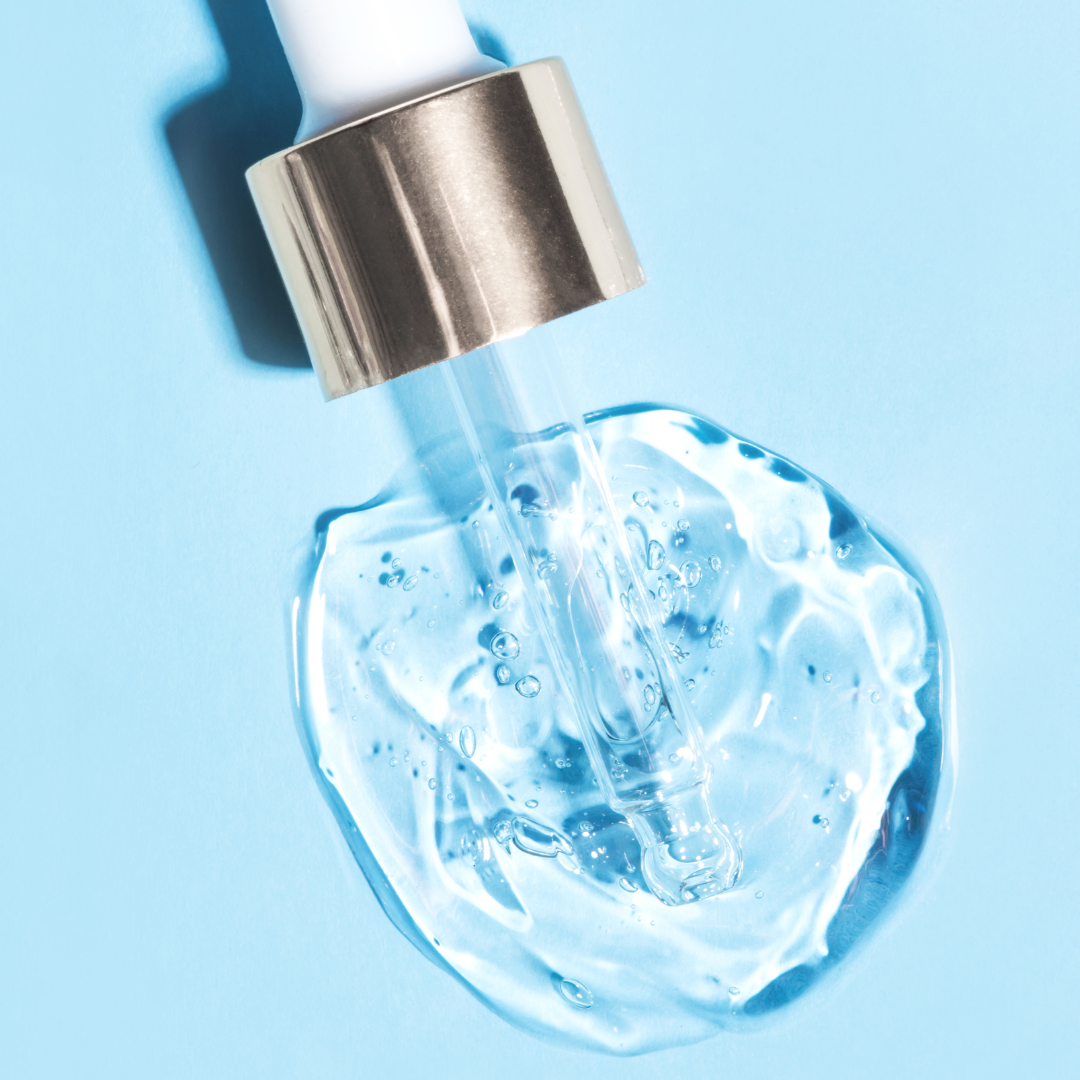
With the obsession of youth and the help of social media, hyaluronic acid has made its way as one of the most popular skincare ingredients in the beauty industry. But what is hyaluronic acid, and can it cause acne?
As some call hyaluronic acid the holy grail for plump, youthful skin, this special skincare molecule has found its way into countless serums, moisturizers, and creams.
In today’s blog post, we’ll be talking about:
- What Is Hyaluronic Acid?
- Why is Hyaluronic Acid So Popular?
- Can Hyaluronic Acid Cause Acne?
- How Hyaluronic Acid Can Be Beneficial For Acne
- Best Hyaluronic Acid Products For Your Face
What Is Hyaluronic Acid?
Hyaluronic acid (HA) is a naturally occurring substance found in the human body, primarily in connective tissues, fluids, and the skin.
It is a glycosaminoglycan, which is a type of molecule composed of sugars and amino acids. Hyaluronic acid plays a crucial role in maintaining hydration, lubrication, and structural integrity within tissues.
In the skin, hyaluronic acid is particularly abundant in the extracellular matrix, where it helps to retain moisture and keep the skin hydrated.
Its unique molecular structure enables it to hold up to 1000 times its weight in water, making it an incredibly effective hydrating agent. This ability to attract and retain moisture is essential for maintaining skin health, elasticity, and suppleness.
Hyaluronic acid also contributes to various biological processes, including wound healing, tissue repair, and inflammation regulation.
It has been shown to possess antioxidant properties and can help protect the skin from environmental damage caused by factors such as UV radiation and pollution.
Hyaluronic acid is widely regarded as a safe and effective ingredient in skincare formulations, providing an essential boost of hydration and contributing to overall skin health and vitality.
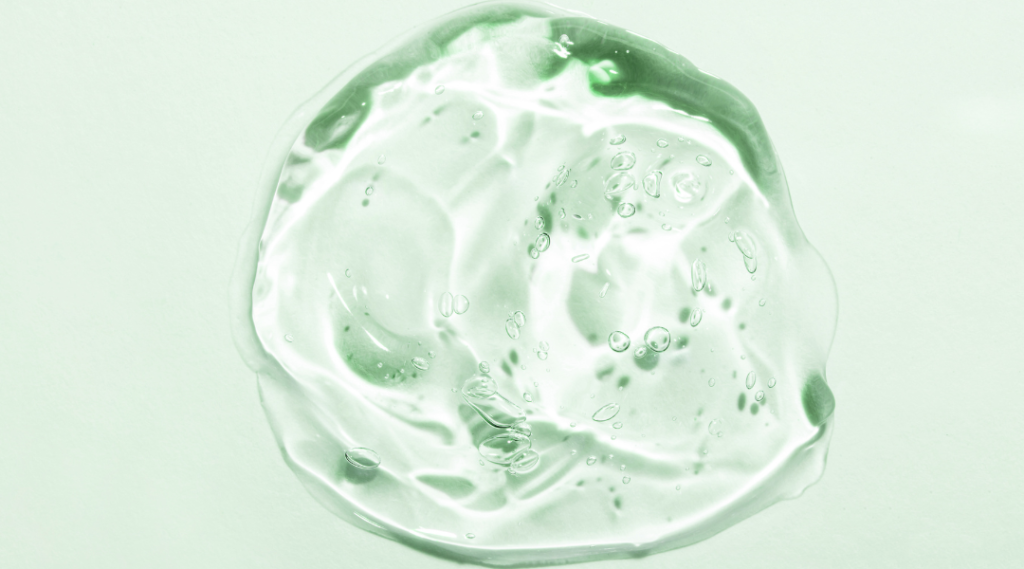
Why is Hyaluronic Acid So Popular?
Now that we know how well hyaluronic acid works in storing hydration and moisture for your skin, there is no doubt its a skincare must-have in a skincare routine.
Hyaluronic acid is incredibly popular due to its remarkable ability to deeply hydrate and plump the skin.
Additionally, as we age, the natural production of hyaluronic acid in the body tends to decrease, leading to dryness, loss of elasticity, and the formation of fine lines and wrinkles.
For this reason, hyaluronic acid has become a popular ingredient in skincare products. By topically applying hyaluronic acid, you can help replenish moisture levels in the skin, improve hydration, and promote a more youthful appearance.
Additionally, it’s suitable for all skin types, including sensitive and acne-prone skin, making it widely accessible and beloved by skincare enthusiasts worldwide.
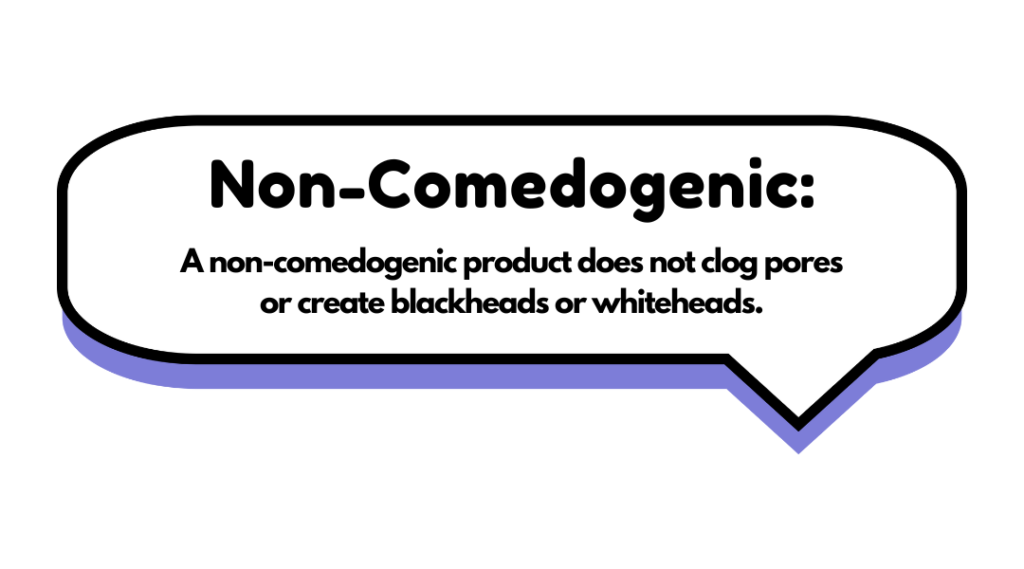
Can Hyaluronic Acid Cause Acne?
The fear that hyaluronic acid can cause acne stems from its molecular structure and its potential to increase skin hydration.
Acne is often associated with excess oil production and clogged pores, leading some to think that adding additional moisture to the skin may worsen these conditions.
However, people often forget that acne is typically caused by a combination of factors.
Acne can arise from a combination of factors, including excess sebum production, bacterial overgrowth, inflammation, and the proliferation of dead skin cells.
While it’s true that heavy moisturizers can potentially cause acne by clogging pores, hyaluronic acid operates differently. Unlike heavier emollients, hyaluronic acid is lightweight and non-comedogenic, meaning it doesn’t clog pores or contribute to acne formation.
How Hyaluronic Acid Can Be Beneficial For Acne
- Hydration Balance: Acne treatments often target excess oil production, which can inadvertently strip the skin of its natural moisture. Hyaluronic acid helps restore hydration levels without adding greasiness, thereby maintaining a healthy moisture balance in the skin.
- Wound Healing: Acne lesions are essentially inflamed wounds on the skin’s surface. Hyaluronic acid possesses wound-healing properties, aiding in the repair of damaged skin and reducing the likelihood of scarring.
- Anti-Inflammatory Effects: Inflammation is a hallmark feature of acne, contributing to redness, swelling, and discomfort. Hyaluronic acid has anti-inflammatory properties that can soothe irritated skin and mitigate the inflammatory response associated with acne.
- Enhanced Penetration: Hyaluronic acid’s small molecular size enables it to penetrate deeply into the skin, delivering hydration to the underlying layers where acne-fighting ingredients can be most effective.
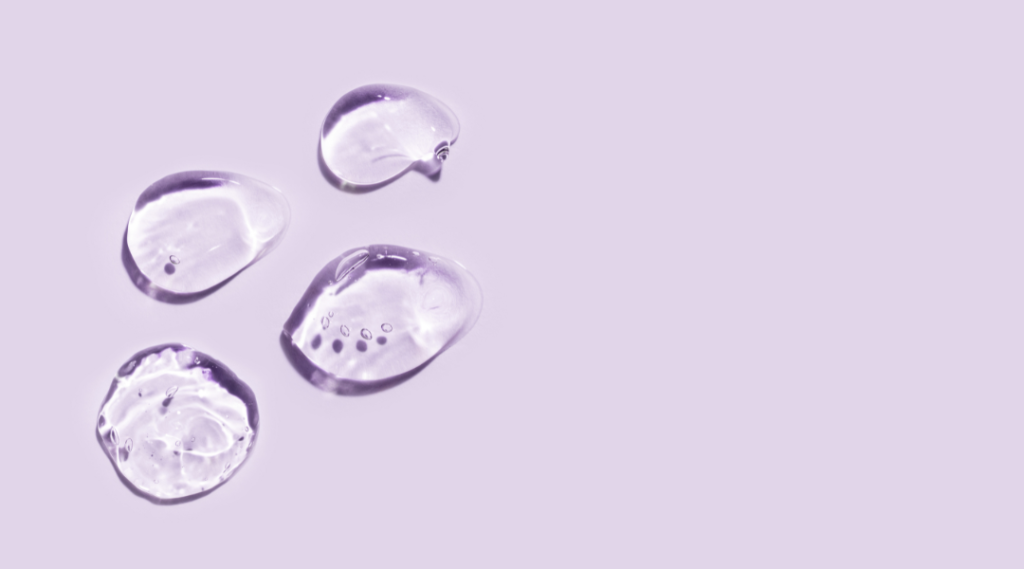
Despite these potential benefits, it’s crucial to approach skincare with a personalized mindset. While hyaluronic acid is generally well-tolerated by most skin types, individual reactions can vary.
Some people may experience sensitivity or irritation when using products containing HA, although such reactions are relatively rare.
Moreover, the formulation of hyaluronic acid products can influence their impact on acne-prone skin. Opting for lightweight, gel-based formulations rather than heavy creams or serums can minimize the risk of pore congestion and acne flare-ups.
Additionally, combining hyaluronic acid with other acne-fighting ingredients, such as salicylic acid or niacinamide, can enhance its efficacy while addressing specific concerns associated with acne.
Best Hyaluronic Acid Products For Your Face
1. Neutrogena Hydro Boost Hyaluronic Acid Serum
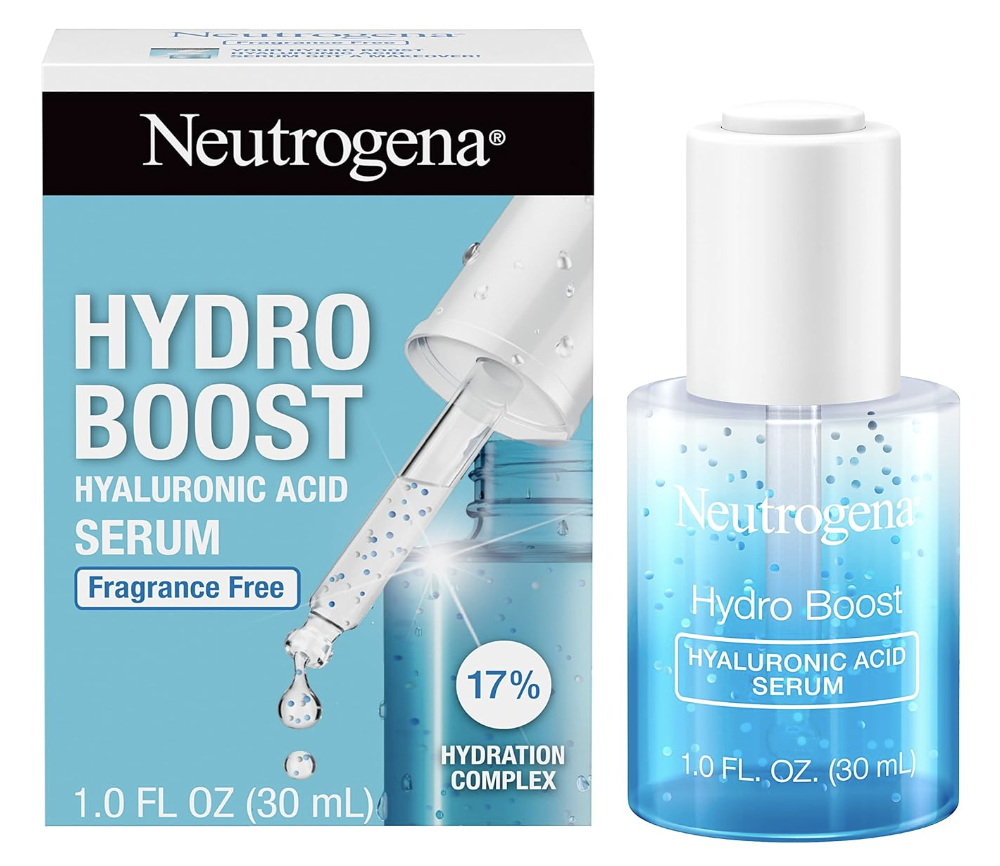
Neutrogena is a well-known brand in the skincare industry, and their Hydro Boost line is especially popular for its hydrating properties. This serum contains hyaluronic acid along with glycerin to deliver intense hydration to the skin.
It is oil-free, non-comedogenic, and suitable for all skin types, making it a versatile option for anyone looking to boost moisture levels in their skincare routine.
2. Cerave Hyaluronic Acid Serum Vitamin B5 and Ceramides
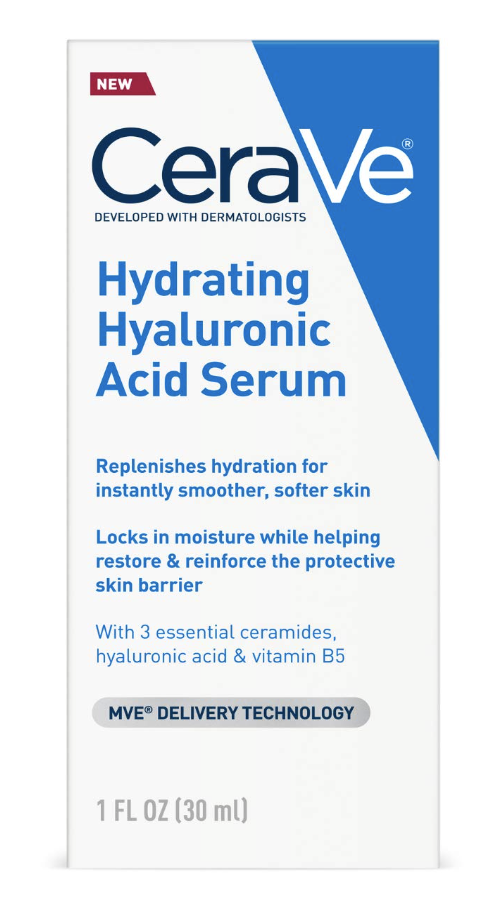
CeraVe Hyaluronic Acid Serum with Vitamin B5 and Ceramides is a skincare product designed to hydrate and replenish the skin’s moisture barrier.
Infused with hyaluronic acid, known for its ability to retain moisture, along with vitamin B5 to soothe and repair the skin, and ceramides to reinforce the skin barrier, this serum helps to promote smooth, hydrated, and healthy-looking skin.
It’s formulated to be non-comedogenic, fragrance-free, and suitable for all skin types, making it a versatile addition to any skincare routine.
3. The ‘Ordinary’ Hyaluronic Acid 2% + B5
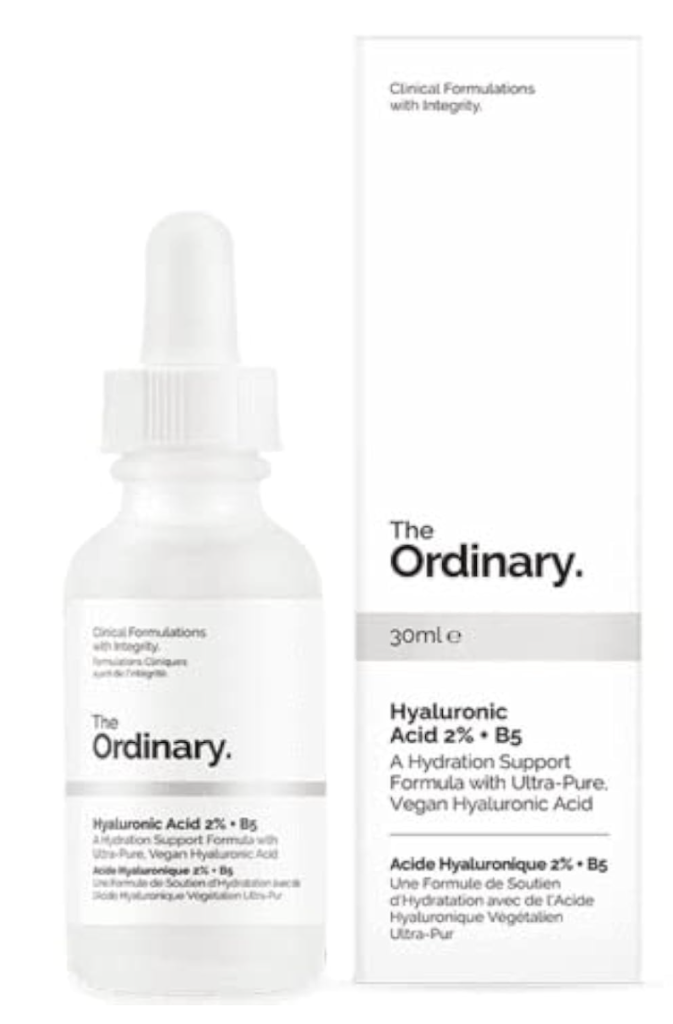
The Ordinary’s Hyaluronic Acid 2% + B5 is a lightweight serum crafted to deliver intense hydration and moisture to the skin.
Formulated with a blend of hyaluronic acid and vitamin B5, it helps to plump and nourish the skin while enhancing its natural barrier function.
This product is designed to be versatile and suitable for all skin types, providing a hydrating boost that leaves the skin looking supple and refreshed.
4. TruSkin Vitamin C Serum with Hyaluronic Acid
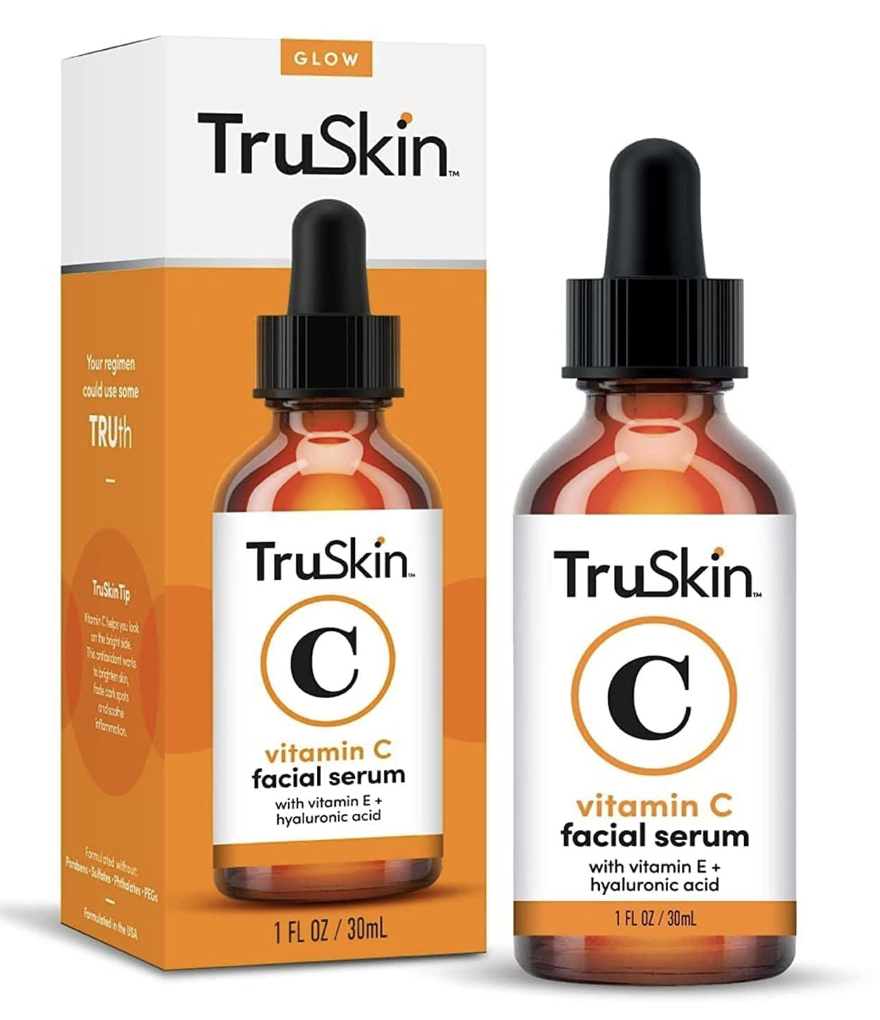
This serum combines the hydrating benefits of hyaluronic acid with the brightening and antioxidant properties of vitamin C.
It also contains vitamin E and botanical extracts to nourish and protect the skin. This serum is formulated without synthetic fragrances, parabens, or sulfates, making it a great option for those with sensitive skin or anyone seeking a clean skincare product.
5. Cosmedica Skincare Pure Hyaluronic Acid Serum
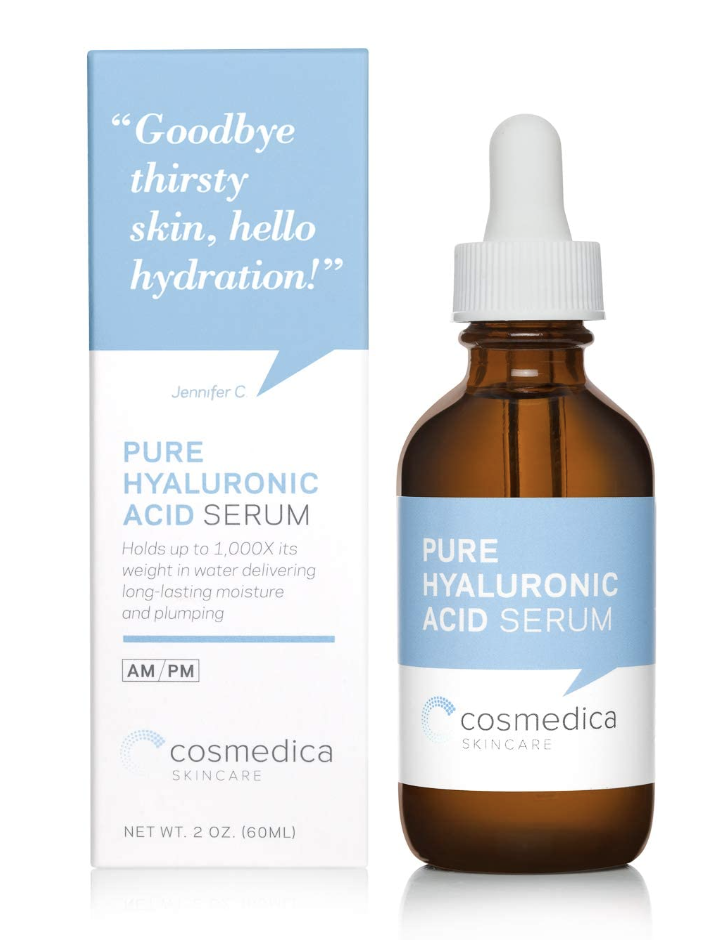
This serum contains a high concentration of pure hyaluronic acid, making it ideal for delivering intense hydration to the skin. It is formulated without any added fragrances, dyes, or preservatives, making it suitable for sensitive skin.
Users rave about its lightweight texture, fast absorption, and ability to plump and smooth the skin, making it a top choice for those looking to address dryness, fine lines, and wrinkles.
Cosmedica products have received positive reviews from customers on Amazon and are trusted options for incorporating hyaluronic acid into your skincare routine. As with any skincare product, it’s essential to patch test and consult with a dermatologist if you have specific skin concerns or conditions.
Bottom Line: What is Hyaluronic Acid and Can It Cause Acne?
Ultimately, hyaluronic acid is a crucial ingredient to have in skincare products to maintain healthy and radiant skin while offering hydration and skin-rejuvenating benefits without a significant risk of acne breakouts.
Hyaluronic acid is praised for its hydrating properties, versatility, and ability to benefit a wide range of skin types!
So, when you’re on the quest to find some of your next skincare products to try, look out for the ones that have hyaluronic acid!